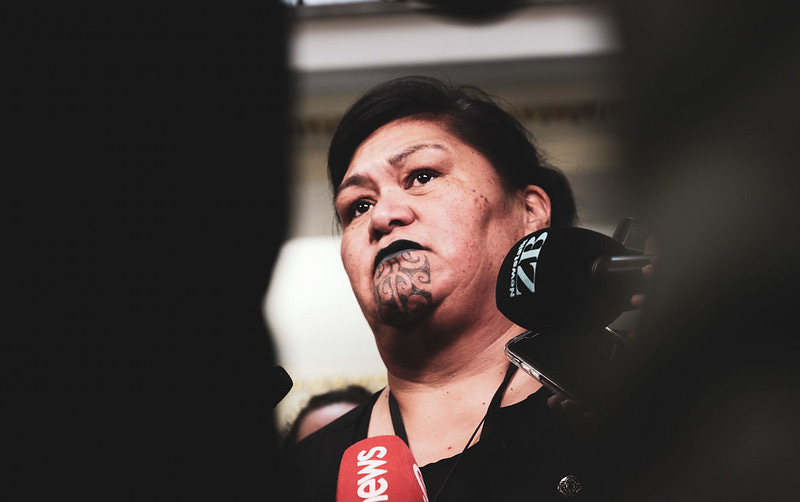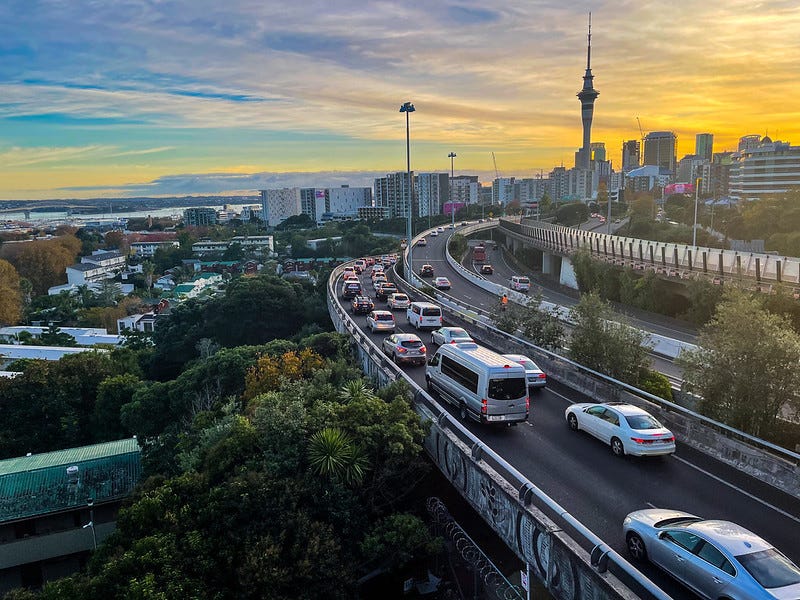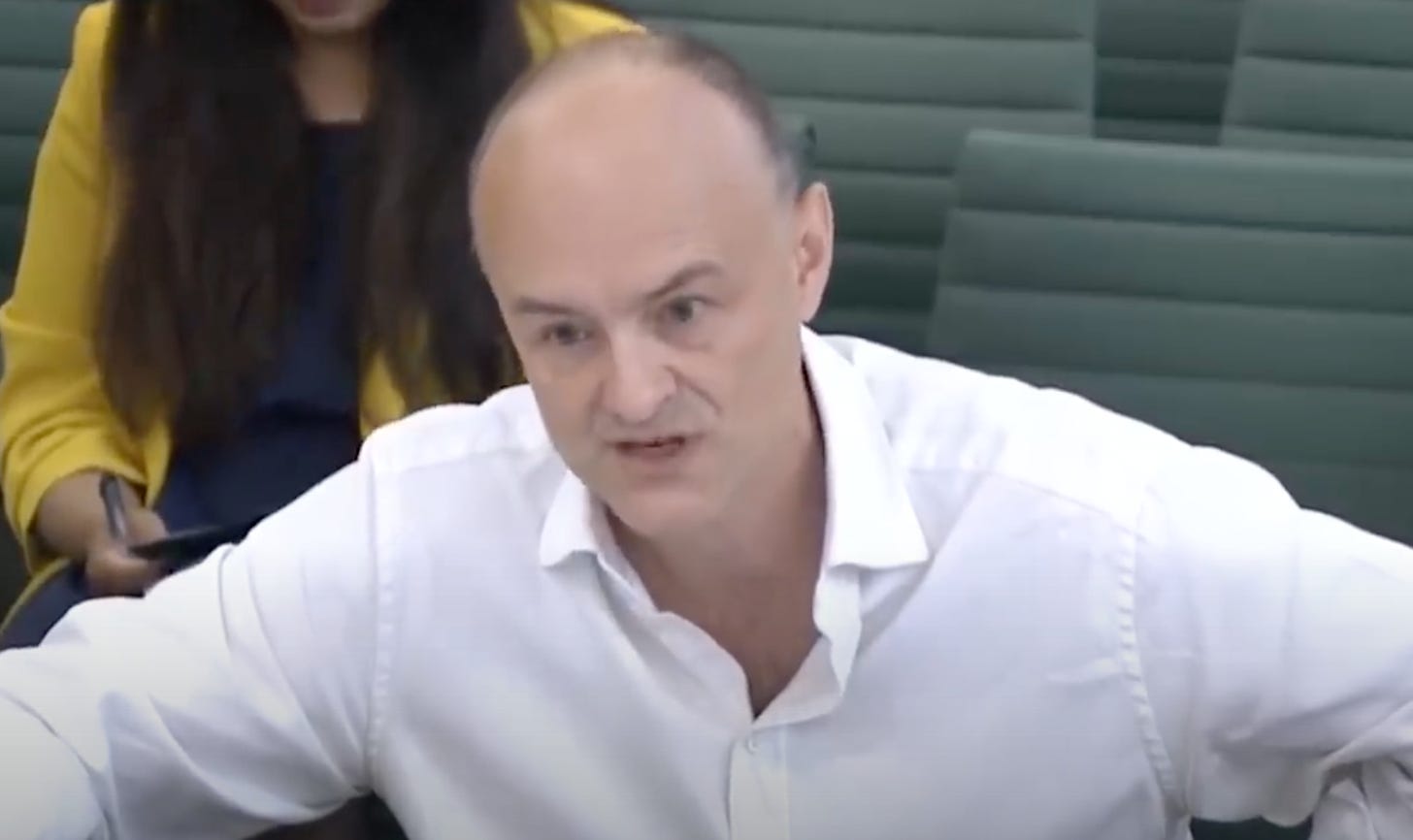TLDL: Former Reuters and FTMarketWatch colleagues Peter Bale and Bernard Hickey take a ‘hoon’ around the big global and long-term issues of the week, including Gaza and the Iron Dome, NZ's warier stance on China, Big Oil's three big climate losses, Amazon buying MGM, Dominic Cummings unleashing on Boris Johnson and Joe Biden’s new doubts about the origin of Covid-19.
Gaza and the Iron Dome
Peter looked in depth in his World Weekly Bulletin newsletter for The Spinoff this week at how Israel’s amazing Iron Dome defence system against hundreds of Hamas rockets at a time has changed the political calculus in the Middle East.
“On the one hand, Iron Dome is the perfect example of Israeli ingenuity and improvisation. But its very success is a reflection of Israel’s biggest problem. Iron Dome allows you to almost ignore the fact that you have a neighbor just across the border with thousands of rockets pointed at you, because they can no longer really harm you. Iron Dome allows you not to find deeper solutions for that problem. And that’s very Israeli as well.” Yaakov Katz, who co-wrote The Weapon Wizards, on Israel’s arms industry, quoted in The Atlantic.
‘Diversify in case there’s a storm’
It wasn’t that long ago both New Zealand’s major political parties included Chinese-born list MPs with strong connections to China’s Communist Party and there were regular and friendly meetings between New Zealand’s ministers and officials. New Zealand’s Free Trade Agreement with China was the rising giant’s first with a developed economy and New Zealand had helped the People’s Republic join the World Trade Organisation.
Then Prime Minister John Key was glowing in his praise of China’s development and actively sought opportunities for Chinese investment in New Zealand, and vice-versa. Then Prime Minister Bill English hosted a visit by China’s head of state Li Keqiang to New Zealand as recently as March 2017, where they signed a memorandum of understanding to cooperate on China’s monstrous yet nebulous Belt and Road Initiative to improve road, rail, telecommunications and other links between China and….everywhere.
Fast forward four years and New Zealand and China are now eyeing each other much more warily. New Zealand has criticised China’s human rights performance publicly and regularly in the last year, along with Australia, the UK, Canada and America in various ways and venues. This would have been unthinkable in 2017.
That wariness is now a bipartisan view and reflects the debate and reporting seen over the last four years, including around National list MP’s Jian Yang’s past, the Huawei 5G stoush and China’s attempts to bully Australia on trade access. It also is a reaction to China’s growing aggression and influence over its diaspora and trading partners in their countries, through a variety of mechanisms, particularly under China’s President Xi Jinping, who was not in charge when New Zealand signed its FTA with China in 2008.
This week we look at Foreign Minister Nanaia Mahuta’s toughest comments yet in a Guardian interview, reporting by Politik (paywalled) that Jian Yang and Labour List MP Raymond Huo were quietly shuffled out of Parliament in a deal done behind closed doors just before last year’s election by the Labour and National Chiefs of Staff after intelligence agency briefings.
Big Oil's three big climate losses
This week Shell, Chevron and Exxon were all hammered in courts and in share proxy battles by climate change campaigners. The tide is turning hard in favour of regulators, financiers, sovereign wealth funds, activists and courts using whatever tools they have to force Big Oil companies and others to reduce emissions.
A Dutch court ruled Shell would have to shrink its emissions by 45% from 2019 levels by 2030 to comply with human rights law. (CNBC) Meanwhile in America, a climate activist hedge fund, Engine No 1, successful managed a shareholders’ revolt to put two members onto the board of Exxon. (Reuters) shareholders on Wednesday voted in favor of a proposal to cut emissions generated by the use of the company's products, a move that underscores growing investor push at energy companies to reduce their carbon footprint. Chevron shareholders voted 61% in favor of a proposal to cut so called "Scope 3" emissions. (Reuters)
Today is the deadline here too for new climate exposure reporting standards for NZ’s 200 biggest banks, insurers, money managers and listed issuers of stocks and bonds. Failure to comply with the Financial Sector (Climate-related Disclosure and Other Matters) Amendment Bill could hit company boards with fines of up to $500,000 and five years in jail.
Dominic Cummings vs Boris Johnson
Britain’s case numbers increased overnight despite having a one-dose vaccination rate of 73% and a two-dose rate of 45%. One in 10 hospital admissions for Covid in the UK this week were for people who had had two doses of vaccine. Over 75% of cases in the UK are now of the Indian variant. Germany and France stopped unquarantined entry of Britons this week because of fears about the Indian variant, which is known as the B.1617.2 strain. See more on that below in charts of the day.
The importance of tightly controlled borders and lockdowns was reinforced again overnight when Imperial College London’s now-renowned Covid modeller, Neil Ferguson, said Britain’s decision to delay its lockdown for a week around March 13 last year is likely to have cost up to 30,000 lives. He was commenting after Boris Johnson’s adviser Dominic Cummings this week accused the Prime Minister of incompetence that cost up tens of thousands of lives. (Yahoo)
“I think that’s unarguable. I mean the epidemic was doubling every three to four days in weeks 13 to 23 March, and so had we moved the interventions back a week we would have curtailed that and saved many lives.” Imperial College London Professor Neil Ferguson.
This is an experiment and we welcome your comments below. We’ll be back again next week on Clubhouse at 3.15pm. Keep an eye on my twitter feed to use the link to jump in.
Ka kite ano


















Share this post